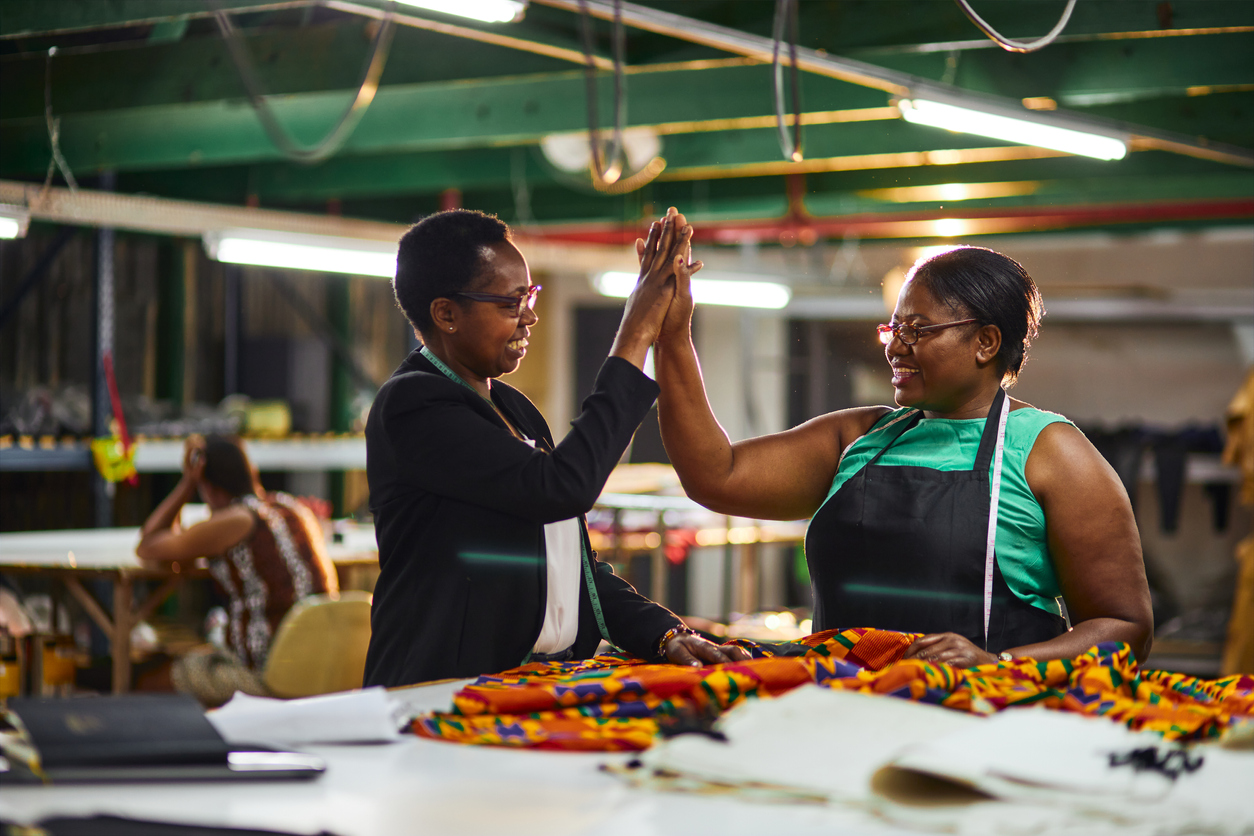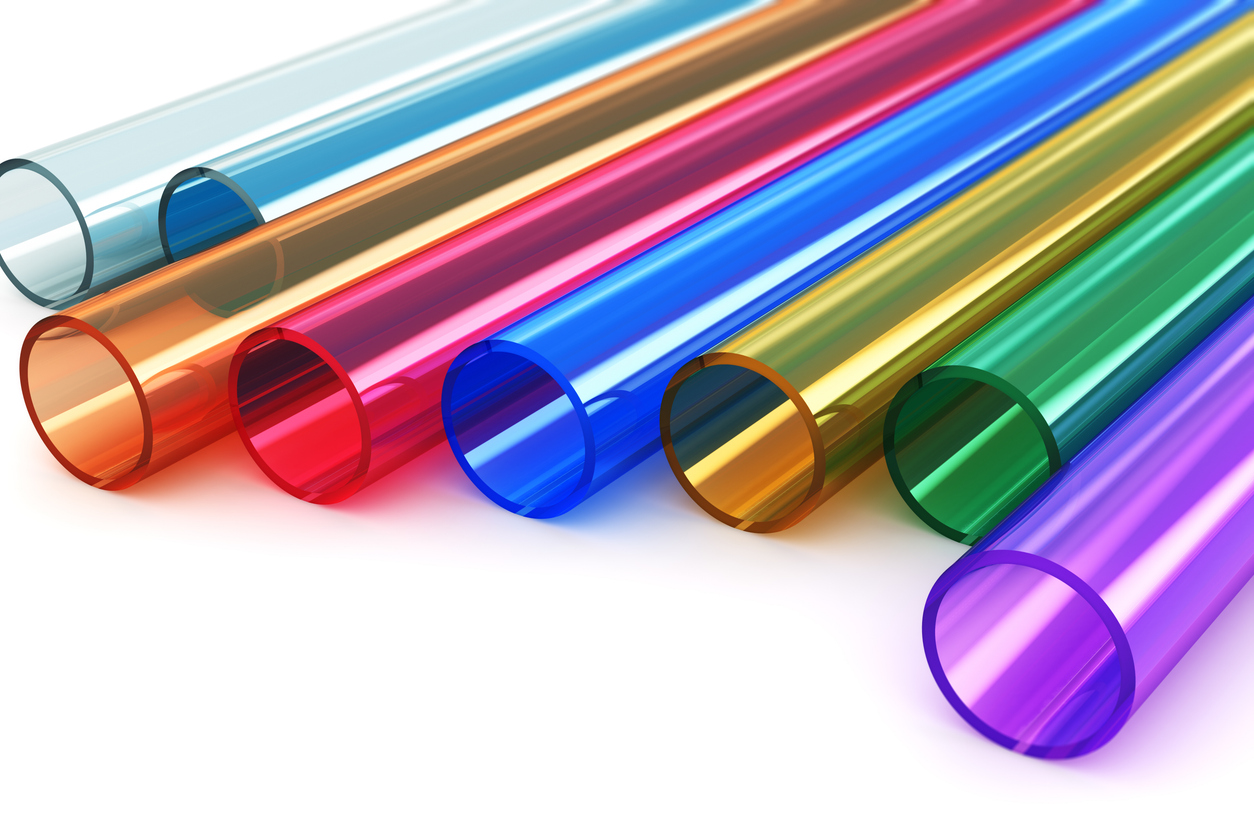Exploring the Rich Tradition of Textile Weaving in Nigeria with Wigmore Trading
Exploring the Rich Tradition of Textile Weaving in Nigeria with Wigmore Trading
Step into the vibrant world of Nigerian textile weaving with Wigmore Trading, where tradition meets innovation in every intricate stitch. Join us as we delve deep into the rich history and cultural significance of this ancient craft, and discover how it continues to thrive in modern times. From colorful adire fabrics to luxurious Aso Oke designs, get ready to be inspired by the beauty and artistry of Nigerian textiles. Welcome to a journey like no other – let’s explore together!
Introduction to the art of textile weaving in Nigeria
Introduction to the Art of Textile Weaving in Nigeria
Nigeria has a rich tradition of textile weaving, with its roots dating back centuries. This intricate craft has been passed down through generations and is deeply embedded in the country’s culture and heritage. The art of textile weaving in Nigeria is not just about creating beautiful fabrics, but it is also an important part of the social fabric, reflecting the diverse history and customs of its people.
The techniques used in Nigerian textile weaving are unique and vary from region to region, making each piece one-of-a-kind. Some popular methods include hand-weaving, strip-weaving, embroidery, tie-dyeing, batik printing, and block printing. These techniques require exceptional skill and precision, which is why most weavers undergo intensive training before mastering their craft.
Hand-weaving is perhaps the most well-known technique in Nigeria. It involves using a loom to interlace threads to create fabric. This method requires great dexterity as each thread needs to be carefully placed to achieve the desired pattern. Hand-woven fabrics are known for their durability and intricacy and are highly valued by many Nigerians.
Strip-weaving or aso-oke (meaning ‘top cloth’ in Yoruba) is another traditional method that involves sewing strips of hand-woven fabric together to create larger pieces. This technique allows weavers to incorporate multiple colors and patterns into one piece while also giving them greater flexibility in terms of design.
Embroidery is often used as an embellishment on woven fabrics, adding texture and depth to the finished product. It involves stitching decorative designs onto a base fabric using different types of stitches such as chain stitch, cross-stitch or satin stitch.
Tie-dyeing has been practiced for centuries throughout Africa but was particularly popularized by Nigerian women during colonial times when they began using imported dyes on local fabrics. This technique uses resist dyeing where specific parts of the fabric are tied or bound to prevent dye from reaching them, creating unique patterns and designs.
Batik printing is a wax-resist dyeing technique that involves using hot wax to create intricate designs on fabric. The wax prevents dye from penetrating those areas, resulting in beautiful patterns when the fabric is dyed. This method requires great skill as the weaver needs to be able to visualize and plan the design before applying the wax.
Block printing uses carved wooden blocks dipped in dye to create repetitive designs on fabric. This method is known for its bold and striking patterns and has been used for centuries in Nigeria.
Nigerian textile weaving is not just a craft; it is an art form that reflects the country’s diverse cultural heritage. The intricate techniques used by skilled weavers result in beautiful and unique fabrics that are highly valued both within Nigeria and around the world. Through Wigmore Trading’s dedication to promoting this traditional craft, we hope to preserve this rich tradition for future generations to appreciate.
History and cultural significance of textile weaving in Nigeria
Nigeria has a rich tradition of textile weaving, dating back centuries. The art of weaving has long been an important part of the country’s cultural heritage and plays a significant role in the lives of many Nigerians. Textile weaving is not only a means of creating beautiful fabrics but also serves as a form of expression, storytelling, and preservation of history.
The earliest evidence of textile weaving in Nigeria can be traced back to the ancient city of Kano, where intricate handwoven fabrics were produced using locally grown cotton. These fabrics were highly prized and traded across West Africa and beyond. Over time, other regions in Nigeria also developed their own unique styles and techniques, reflecting their distinct cultures and traditions.
One notable example is the Aso Oke fabric from the Yoruba tribe. This fabric is made using narrow strips of handwoven cloth that are then sewn together to create larger pieces. The patterns and colors used in Aso Oke have deep cultural meanings and are often worn during special occasions such as weddings or festivals.
Another well-known Nigerian textile is Adire, which originated from the Yoruba town of Abeokuta. Adire involves intricately tie-dyeing or batik techniques on indigo-dyed fabric to create beautiful patterns and designs. Traditionally, these fabrics were used for everyday wear but have gained popularity worldwide for their unique style.
Textile weaving in Nigeria also holds great significance in terms of social status and identity within different communities. In some areas, certain types or colors of fabric are reserved for royalty or specific groups within society. For example, among the Igbo people, red cloth represents wealth while white cloth symbolizes purity.
Furthermore, textiles play an essential role in preserving Nigeria’s history and culture through their designs and motifs. Many traditional fabrics feature symbols that hold deep cultural significance passed down through generations. These symbols may represent values such as strength, courage, fertility, and more.
Despite the introduction of modern manufacturing techniques, traditional textile weaving remains a vital part of Nigerian culture. It has also become an important source of income for many families in rural areas. The skills and knowledge of weaving are often passed down within families, ensuring that this valuable tradition continues to thrive.
The history and cultural significance of textile weaving in Nigeria is a testament to the country’s rich heritage and diverse communities. Through Wigmore Trading’s commitment to promoting locally-made fabrics, we hope to continue celebrating this vibrant tradition and support the artisans who keep it alive.
Traditional techniques and materials used in Nigerian textiles
Nigerian textiles have a long and rich history, dating back centuries. The traditional techniques and materials used in the creation of these textiles are an integral part of Nigerian culture and continue to be passed down through generations.
One common technique used in Nigerian textile weaving is hand-weaving on a loom. This process involves interlacing threads or yarns to create a woven fabric. The loom used for this technique can vary from a simple backstrap loom to more complex horizontal or vertical looms, depending on the desired design and pattern.
Another traditional method of textile production in Nigeria is adire dyeing. Adire is a resist dyeing process where patterns are created by using wax or starch paste to block out certain areas of the fabric before dyeing it. This technique allows for intricate designs and vibrant colors to be incorporated into the fabrics.
In addition to these techniques, natural dyes play a significant role in Nigerian textile production. For centuries, plants, roots, barks, and other natural materials have been used as sources of dyes in creating beautiful and unique fabrics. These dyes not only provide beautiful hues but also hold cultural significance as they are often derived from plants that hold symbolic meaning in Nigerian culture.
Cotton is one of the most commonly used materials in Nigerian textiles due to its abundance locally. However, silk, wool, linen, and even raffia palm fibers are also utilized depending on the region and type of textile being produced.
The use of beads is another prominent feature in Nigerian textiles. Beads are often hand-sewn onto fabrics or strung together into intricate patterns to add texture and embellishment to garments such as headpieces, jewelry, ceremonial wear or even everyday clothing.
Furthermore, embroidery is another significant aspect of traditional Nigerian textiles with various styles such as kantha stitching or cross-stitching being utilized across different regions in Nigeria. Embroidery adds intricate details and designs to fabrics, making them visually stunning and unique.
The traditional techniques and materials used in Nigerian textile production highlight the diverse and dynamic culture of this country. These methods have been passed down from generation to generation, reflecting the values, customs, and beliefs of different communities within Nigeria. The use of natural dyes, hand-weaving on looms, adire dyeing, beadwork, and embroidery all contribute to the rich tradition of Nigerian textiles that continue to captivate people worldwide.
Wigmore Trading: A leading supplier of Nigerian textiles and materials
Wigmore Trading is a name that has become synonymous with quality and reliability in the Nigerian textile industry. As a leading supplier of Nigerian textiles and materials, Wigmore Trading has been at the forefront of promoting and preserving the rich tradition of textile weaving in Nigeria.
Established over 20 years ago, Wigmore Trading has built a reputation for providing high-quality fabrics and materials to customers both within Nigeria and around the world. The company prides itself on its vast collection of authentic Nigerian textiles, sourced directly from local weavers and artisans.
One of Wigmore Trading’s main specialties is Aso Oke, a traditional Yoruba fabric that holds deep cultural significance. Aso Oke is handwoven by skilled artisans using locally grown cotton or silk threads. The result is a beautifully textured fabric with intricate patterns and vibrant colors.
In addition to Aso Oke, Wigmore Trading also offers other traditional Nigerian fabrics such as Adire (tie-dye), Akwete (hand-loomed), Kente (striped cloth), and Ankara (printed cotton). These fabrics are not only visually stunning but also reflect the diverse cultural heritage of Nigeria.
What sets Wigmore Trading apart from other suppliers is their commitment to supporting local weavers and preserving their craft. By working closely with these talented artisans, they ensure that their products stay true to their roots while meeting modern-day standards of quality.
Furthermore, Wigmore Trading prides itself on its ethical sourcing practices. All fabrics are ethically produced using sustainable methods, ensuring minimal impact on the environment. This dedication to sustainability has earned them recognition from organizations such as the Global Organic Textile Standard (GOTS).
Apart from serving individual customers looking for unique fabrics, Wigmore Trading also caters to businesses such as fashion designers, retailers, and interior decorators who require bulk quantities of authentic Nigerian textiles. With their extensive selection and competitive prices, it’s no surprise that they have become the go-to supplier for many in the industry.
Wigmore Trading is more than just a supplier of Nigerian textiles and materials. They are champions of preserving and promoting the rich tradition of textile weaving in Nigeria. With their commitment to quality, sustainability, and support for local artisans, they have firmly established themselves as a leader in the Nigerian textile industry.
Spotlight on Nigerian textile weavers and their craft
Nigeria has a rich tradition of textile weaving, with a long history that dates back centuries. The country is home to numerous talented weavers who have mastered the art of creating intricate and beautiful fabrics using traditional techniques passed down through generations.
One of the main centers for textile weaving in Nigeria is Kano, located in the northern part of the country. Here, skilled weavers create stunning fabrics using handlooms and dyed threads made from locally sourced materials such as cotton and silk. These fabrics are then used to create a variety of products including clothing, bags, and home decor items.
The process of textile weaving in Nigeria begins with the design phase. Weavers use their creativity and knowledge of traditional patterns to come up with unique designs that reflect their cultural heritage. These designs are then transferred onto graph paper or directly onto the loom itself.
Once the design is finalized, the next step is preparing the threads for weaving. This involves spinning raw cotton or silk fibers into yarns which are then dyed using natural dyes extracted from plants and minerals found in Nigeria. This dyeing process requires great skill as different colors can be achieved by varying factors such as temperature and pH levels.
With all materials ready, the actual weaving process begins on a handloom which is operated manually by foot pedals. The weaver carefully interlaces each thread according to the predetermined pattern while also adjusting tension to ensure an even weave. This requires patience, precision, and years of practice to master.
What makes Nigerian textiles truly special is not just their intricate patterns but also their durability and sustainability. The use of natural dyes not only creates beautiful colors but also ensures that no harmful chemicals are released into the environment during production.
Unfortunately, due to changes in consumer preferences towards cheaper mass-produced fabrics, traditional textile weavers in Nigeria face challenges in sustaining their craft. However, organizations like Wigmore Trading are working towards promoting these artisans by providing them with a platform to showcase their products and connect them with global markets.
By supporting Nigerian textile weavers, not only are we preserving a centuries-old tradition, but also contributing to the economic growth of local communities. Each fabric is a work of art that tells a story and carries the cultural heritage of Nigeria. So next time you come across a Nigerian textile product, remember the skill and dedication that went into creating it, and consider adding it to your collection as a way to support these talented artisans.
Impact of modern technology on traditional textile weaving in Nigeria
The impact of modern technology on traditional textile weaving in Nigeria has been both beneficial and challenging. On one hand, it has brought about advancements in production techniques and increased efficiency, but on the other hand, it has also posed a threat to the age-old tradition of textile weaving.
One of the most significant impacts of modern technology on traditional textile weaving is the introduction of power looms. These machines have greatly increased the speed and precision of production, allowing weavers to create larger quantities in a shorter amount of time. This has led to an increase in supply and availability of Nigerian textiles both domestically and internationally.
Moreover, modern technology has also enabled weavers to experiment with new designs and patterns through computer-aided design (CAD) software. This has expanded their creative possibilities and allowed them to cater to a wider range of customer demands. As a result, Nigerian textiles have become more diverse and innovative, attracting a larger consumer base.
However, while these advancements have improved production capabilities, they have also caused a decline in the demand for handwoven textiles. Many weavers struggle to compete with mass-produced machine-made fabrics that are cheaper and more readily available in today’s market. This has led to a decrease in income for traditional weavers as well as a loss of interest among younger generations in learning this skill.
In addition, modern technology has also had an impact on natural dyeing techniques used by traditional weavers. With the rise of synthetic dyes, many weavers have shifted away from using natural dyes due to their longer processing time and higher cost. This shift not only affects the authenticity and quality of Nigerian textiles but also poses environmental concerns.
Another challenge faced by traditional weavers is access to affordable raw materials such as high-quality yarns or cotton fibers. The use of low-grade materials can negatively affect the final product’s quality and hinder its competitiveness against machine-made fabrics.
Despite these challenges, there are efforts being made to preserve the traditional art of textile weaving in Nigeria. Organizations such as Wigmore Trading are actively working with local weavers to provide them with access to modern technology, training, and resources, allowing them to enhance their skills and sustain their livelihoods.
While modern technology has undoubtedly impacted traditional textile weaving in Nigeria, it is essential to find a balance between preserving the rich cultural tradition and embracing technological advancements. By supporting and promoting traditional weavers and their craft, we can ensure that this unique aspect of Nigerian culture continues to thrive for generations to come.
Exploring different types of Nigerian textiles and their uses
Nigeria has a rich tradition of textile weaving that dates back centuries. The country is known for its vibrant and diverse range of textiles, each with its own unique history, design, and purpose. In this section, we will explore some of the different types of Nigerian textiles and their uses.
1. Aso-Oke:
Aso-Oke is a hand-woven fabric that is native to the Yoruba tribe in southwestern Nigeria. It is made from locally grown cotton or silk and features intricate patterns and designs created by using a narrow loom. Aso-Oke is traditionally used for special occasions such as weddings, festivals, and other cultural events.
2. Adire:
Adire is a versatile textile that originated from the Yoruba people but gained popularity among other ethnic groups in Nigeria. It involves using resist-dyeing techniques to create patterns on cotton fabric. Adire can be found in various colors and styles and is used to make garments such as dresses, skirts, shirts, and even home decor items.
3. Akwete:
Akwete cloth comes from the Igbo tribe in southeastern Nigeria and is made using a traditional handloom technique passed down from generation to generation. The fabric has bold geometric patterns woven into it using cotton threads dyed with natural plant-based dyes such as indigo or ochre. Akwete cloth is mainly used for ceremonial purposes but can also be found in contemporary fashion collections.
4. Kampala:
Kampala refers to brightly colored checkered fabrics that are popularly worn by both men and women in Nigeria. This type of textile was originally introduced by Scottish missionaries but has since become an integral part of Nigerian culture. Kampala can be found in different color combinations and is mostly used for casual wear or as head wraps.
5.Celebration Time Ankara:
Celebration Time Ankara (CTA) fabrics have become increasingly popular in recent years for their vibrant colors and bold patterns. These textiles are made from 100% cotton and are usually worn to mark special occasions such as weddings, birthdays, or other celebrations. CTA fabrics can also be used for everyday wear in the form of dresses, skirts, tops, and even accessories like bags and headwraps.
In addition to these traditional textiles, Nigeria is also known for its production of high-quality lace fabrics, which have been embraced by both locals and international fashion designers. These fabrics are used in a variety of styles ranging from casual to formal wear.
Nigerian textiles not only showcase the country’s rich cultural heritage but also serve as a means of income for many weavers and artisans. Each fabric has its own unique story and purpose, making them an essential part of Nigerian identity and pride. Whether it’s for special occasions or everyday wear, Nigerian textiles continue to play a significant role in the country’s fashion industry and global recognition.
Reviving and preserving the tradition of textile weaving in Nigeria with Wigmore Trading
Nigeria has a deep-rooted history and tradition of textile weaving, with a diverse range of fabrics, patterns, and techniques that have been passed down through generations. However, over the years, this traditional art form has faced challenges such as lack of support and modernization, leading to its decline. In recent times, there has been a revival of interest in preserving Nigeria’s textile weaving heritage with the help of companies like Wigmore Trading.
Wigmore Trading is one of the leading suppliers of textile materials in Nigeria and is committed to reviving and preserving the tradition of textile weaving in the country. The company works closely with local weavers and artisans to source high-quality raw materials for traditional fabrics such as Aso Oke, Adire, Kente, and Akwete.
One way Wigmore Trading supports the revival of textile weaving in Nigeria is by providing training programs for local weavers. These programs are designed to enhance their skills and knowledge about various techniques used in producing traditional fabrics. This not only helps them improve their craftsmanship but also provides them with an opportunity to earn a sustainable livelihood.
Moreover, Wigmore Trading takes pride in supporting small-scale weavers by providing them access to modern equipment and technology that can help increase their productivity without compromising on quality. By incorporating new methods into their traditional practices, these weavers are able to create more intricate designs while still staying true to their cultural heritage.
In addition to promoting local weavers’ skills development and providing them with necessary tools for improvement, Wigmore Trading also encourages innovation among them. The company organizes annual competitions where they showcase the best work of these talented artisans. This not only boosts their confidence but also inspires others to explore new ideas while staying true to their roots.
Furthermore, Wigmore Trading is dedicated to preserving the authenticity of Nigerian textiles by sourcing materials directly from local farmers instead of relying on imported ones. This ensures that the fabrics produced are truly reflective of the country’s heritage and are not influenced by external factors.
Wigmore Trading’s efforts in reviving and preserving the tradition of textile weaving in Nigeria are commendable. By empowering local weavers, promoting innovation, and preserving the authenticity of Nigerian fabrics, the company is playing a crucial role in keeping this rich cultural heritage alive for generations to come.
–
– Historical Significance of Textile Weaving in Nigeria
Textile weaving has a long and rich history in Nigeria, dating back to ancient times. The craft of weaving textiles has been an integral part of the country’s culture and economy for centuries. It is deeply embedded in the traditions and customs of various ethnic groups, representing their unique cultural identity.
One of the earliest forms of textile weaving in Nigeria is known as “Aso-Oke”, which translates to “top cloth” or “clothing from up” in Yoruba language. This traditional handwoven fabric is made using locally grown cotton or silk threads and is characterized by its vibrant colors and intricate designs. Aso-Oke was traditionally worn by royalty and nobles for special occasions such as weddings, festivals, and ceremonies.
Another notable form of Nigerian textile weaving is Adire, which originated from the Yoruba people in southwestern Nigeria. This technique involves resist-dyeing patterns onto cloth using cassava paste or wax before dying it with indigo dye. Adire fabrics are known for their vibrant blue hues and bold geometric patterns, making them highly sought after both locally and internationally.
The northern part of Nigeria also has a strong tradition of textile weaving, with a focus on handwoven fabrics like Hausa Cloth, Kano Cloth, Gobaranci, Zaria Brocade among others. These fabrics are made using techniques such as strip-weaving on narrow looms or hand embroidery using gold or silver threads. They often feature intricate patterns inspired by Islamic art and calligraphy.
Aside from their cultural significance, these traditional textiles also played a crucial role in the country’s economy through trade routes across West Africa during pre-colonial times. With the arrival of European traders came new materials like machine-woven cloth that were cheaper but lacked the quality and craftsmanship of Nigerian handwoven textiles.
Today, despite facing competition from modern industrialized fabrics, the art of textile weaving in Nigeria continues to thrive. It has become an important source of income for many families, particularly women who specialize in handcrafting these fabrics. Moreover, there is a growing movement to preserve and promote traditional Nigerian textiles as a symbol of cultural heritage and pride.
The rich tradition of textile weaving in Nigeria is not only a testament to the country’s vibrant culture but also plays a significant role in its history and economy. Its legacy lives on through the skilled artisans who continue to produce exquisite handwoven fabrics that are treasured both locally and globally.








Comments are closed.